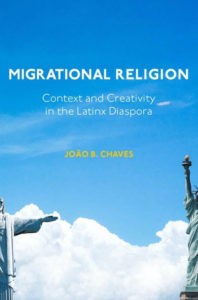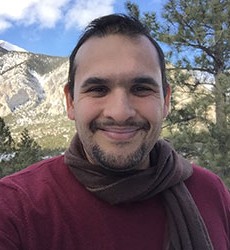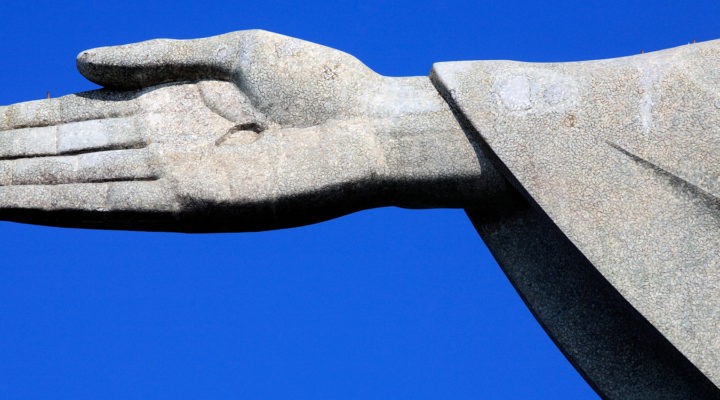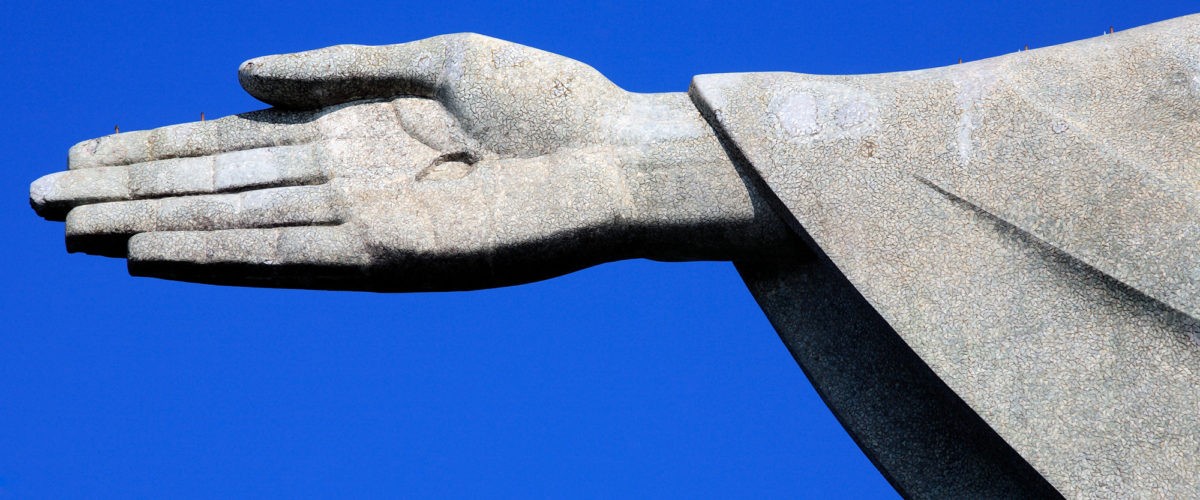Over time, immigrants to new countries behave in new ways and embrace new ideas that they would not have embodied had they never left home, according to João Chaves, author of a forthcoming book titled Migrational Religion: Context and Creativity in the Latinx Diaspora.
This cultural adaptation has important outcomes for religious beliefs and behaviors, Chaves said during a workshop at the Cooperative Baptist Fellowship’s 2021 General Assembly. Chaves serves as assistant director for programming at the Hispanic Theological Initiative, housed at Princeton Theological Seminary. He also is co-director of the Baptist Scholars International Roundtable and a member of the Commission on Racial, Gender and Economic Justice of the Baptist World Alliance.
 “When people move to new countries, something happens to them, … they have to adapt to a whole new society,” he explained. “In this process of adaptation, they change a number of practices and beliefs without knowing they are doing it. … They become radically different.”
“When people move to new countries, something happens to them, … they have to adapt to a whole new society,” he explained. “In this process of adaptation, they change a number of practices and beliefs without knowing they are doing it. … They become radically different.”
This is not just a modern phenomenon, he said, citing historic figures in Baptist and Christian history to illustrate. Those models included Irenaeus of Lyon, Bartolomé de las Casas, William Carey, and Lottie Moon.
“This dynamic has been in the history of Christianity for a long time. Many Christian figures illustrate this,” he said. “People are being changed by new social contexts and cultures.”
The world to come
Understanding this reality will be important for American Christians to make sense of the world around them today and in the future, Chaves said, because the center of global Christianity is shifting, and because demographics of Christians in America are shifting.
In 1900, he reported, 82% of the world’s Christians lived in North America and Europe. Today, only 32% of the world’s Christians live in those regions, while the largest concentration lives in Latin America, Africa and Asia.

João Chaves
Further, by the year 2060, the United States is projected to be the only country not located in Latin America, Africa or Asia among the 10 most populous nations for Christians.
Added to that, the shifting center of race and ethnicity in the United States will further change Christian identity, he said, quoting demographers’ projections that by 2050, non-Hispanic whites will make up 46% of the U.S. population, down from 65% in 2010. In the same time frame, Hispanics are projected to double in presence, from 16% to 30%.
Much of that growth will come through migration and the birth of children to those who have migrated.
A case study from Brazil
Using Southern Baptists and Brazil as a case study, Chavez said American Christians need to understand that Brazilians who come to the U.S. will think and behave differently than the Brazilian Baptists that have been shaped significantly by Southern Baptist missionaries for more than 100 years.
Research for his book caused him to delve into data and interviews with leaders of Baptist congregations both in Brazil and the United States. The Baptist presence in Brazil has been largely shaped by Southern Baptist missionaries since 1881. Even though Brazilian Baptists formed their own association, there is a significant overlap between it and the Southern Baptist Convention, Chavez reported.
But another story emerges among Baptist congregations started by Brazilians in the U.S., he added. While rooted in Baptist theology and culture, the U.S. churches are more likely to attract worshipers because they are Brazilian than because they are Baptists. That, combined with cultural adaptation, causes U.S.-based Brazilian churches to act and think differently than Baptist churches in Brazil.
“It is easier for the Southern Baptist Convention to maintain its ideological hold on Baptists in Brazil” than it is for the SBC to hold sway over Brazilian Baptists in the U.S., he said. In Brazil, the SBC and its allies influence the seminaries and publishing houses, as well as the history.
Immigrant churches, Chavez said, “have prioritized ethnic identity over theology.”
But among Brazilian churches in the U.S., there are many competing influences, not the least of which is the mixed backgrounds of those people joining the church, he continued. “A Brazilian Baptist church here has the name Baptist in it, but you cannot be really Baptist because of the number of Brazilians coming in the door. … some are Presbyterian, Pentecostal, Methodist. … The focus here is on ethnic identity, not doctrinal commitment.”
Immigrant churches, Chavez said, “have prioritized ethnic identity over theology.”
And back to his first point, he added, when Brazilian Baptists come to the U.S., “the very experience of being an immigrant in the United States changed them.”
Justice, race and ethnicity
The result is that the SBC and Brazilian Baptist churches are farther from each other geographically but closer to each other ideologically, he said, while Brazilians living in the U.S. are closer geographically to the SBC’s center of influence but farther apart ideologically.
This shows up in issues of justice, race and ethnicity, Chavez said.
For example, one of the ways the language of conservative evangelical culture in America doesn’t connect with Brazilians, he said, is by talking about “law and order” as a mark of Christianity and the need to be a “law-abiding citizen.” For residents of countries where laws often are unjust — as well as for immigrants from those countries to America — this does not connect. From their life experience, to be a Christian sometimes means not being a “law-abiding” citizen.
Brazilians also know that their country continued to allow slavery 23 years after it was made illegal in the U.S. and that 10,000 to 20,000 Confederados from the American South moved to Brazil in an attempt to continue their slave-holding practices.
And, he said, they notice that “some Americans are proud to be law-abiding citizens in a nation that just the other day thought killing Black bodies in the streets was OK.” Brazilians also know that their country continued to allow slavery 23 years after it was made illegal in the U.S. and that 10,000 to 20,000 Confederados from the American South moved to Brazil in an attempt to continue their slave-holding practices.
“It is good theological practice not to defend ‘legality’ without strong qualification” of what you mean by it, Chavez said.
Another illustration of the differences in cultures from Baptists in Brazil to Brazilians coming to America is how they deal with the large numbers of Brazilians (estimated to be 70%) who live undocumented in the U.S. In the book, Chavez tells the story of a Baptist pastor who came to the U.S. from Brazil and upon arriving at the church he was to serve found a large number of undocumented persons. His reaction was to call the U.S. Immigration Service to ask what he should do.
During the question-and-answer session moderated by Elket Rodriguez of Fellowship Southwest and CBF, one participant asked Chavez about the vulnerability of Portuguese-speaking immigrants versus Spanish-speaking immigrants.
Chavez noted there is a lot of overlap between the two groups and that many immigrant churches in the U.S. include Portuguese speakers and Spanish speakers along with English speakers. “There are many arrangements,” he said.
However, one finding from his research is that often Brazilians “distance themselves from the Hispanic and Latinx label because they want to capitalize on U.S. romanticized notions of Brazilian identity.”
“What happens to Brazilians here is sometimes in a strategy of being accepted in a society that is extremely racist, they become racists. Capitalizing on white U.S. conceptions of what a Brazilian is manifests in a kind of inter-Latinx racism. Being Brazilian in the U.S. is not seen as a negative thing, even though being seen as Hispanic often is.”
Related articles:
Pandemic has accelerated needed changes in churches, panelists report
Pastors ponder pandemic preaching problems — and how they’ve survived


